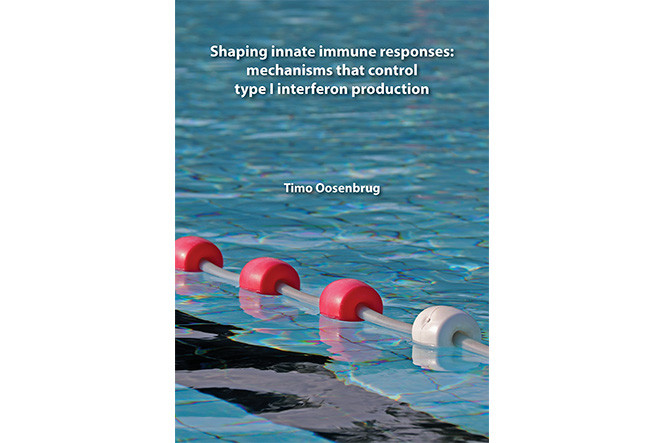Type I interferons (IFN-I) are pleiotropic cytokines that were originally identified for their antiviral properties and are now recognized for playing key roles in the defense against a range of other microorganisms as well as cancer. Their production should be well-controlled to be of benefit to the host, as excessive or chronic IFN-I expression leads to adverse effects such as immunosuppression or the induction of severe immunopathology.
The studies presented in this thesis are aimed at uncovering mechanisms that regulate the production of IFN-I. The obtained knowledge on the involved molecular processes, may aid the development of targeted therapies that enhance or intercept IFN-I responses for maximum host protection while minimizing damage.
